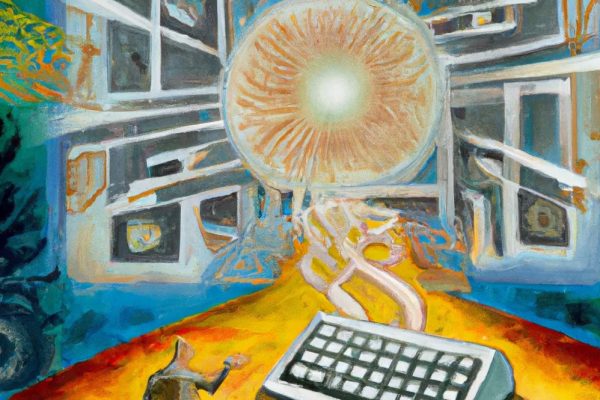If you go to the Boston Review Web site, you’ll find the slogan “Ideas Matter” gracing the top of the homepage. Since I write a column for the magazine—and even wear a BR T-shirt announcing the slogan—I am not unsympathetic to the spirit of the claim. But in the social sciences, the idea that ideas matter has always been controversial. How much do ideas really matter? Do they affect individuals and societies more or less than do material circumstances such as economic incentives, physical constraints, and military force?
Arguments one way or the other often address broad historical issues, such as the economic rise of the West. Does the credit go to the Protestant ethic (Max Weber) or the West’s geographical advantages (Jared Diamond)? Do differences between Asian and European societies result from Confucianism versus Greek thought, collectivism versus individualism, late versus early industrialization—or something else? Disputes over individual differences in behavior are similarly polarized: Are they to be explained by what people think or by their circumstances? The dispute is probably sharpest over poverty: Are people poor because a “culture of poverty” trained them to think and behave in self-defeating ways or because they lack opportunities? In these debates, ideas matter to the extent that they shape how people understand the world, value their options, and follow social norms.
But there is another way in which an idea can matter—by reshaping reality in its image. An idea, even one that incorrectly describes the world, can become a true description because people take it to be so and act accordingly. Ideas can be, as the great sociologist Robert K. Merton labeled them, self-fulfilling prophecies.
Prominent examples can be found in psychology. Over the last two centuries medical practitioners have identified problems such as melancholia, neurasthenia, hysteria, nostalgia, and hyperactivity. Some conditions had their heydays and then disappeared. But their codifications almost certainly led more doctors to diagnose and more patients to experience those syndromes. Simply by being exposed to an idea, doctors are prompted to see more cases and patients are prompted to enact the diagnoses.
In a long series of studies, psychologist Carol Dweck and her colleagues have described another and pervasive self-fulfilling prophecy. People who believe that skills are fixed—e.g., “I’m just not a ‘math person’”—tend to fail at those skills. If you don’t think you can improve, you don’t try. Conversely, people who believe that skills are improvable are likelier to improve them.
In one of Dweck’s studies, researchers randomly divided around ninety minority, low-achieving seventh-graders into two groups. Both received study-skills coaching for eight weeks, but one group learned that the brain was changeable and could be strengthened by “exercise,” like a muscle. The other group learned instead about memorization skills. By the end of the school year, the first group was likelier to agree with statements such as, “The harder you work at something, the better you will be at it.” They also earned significantly higher math grades.
Along similar lines, sociologists Amy Hsin and Yu Xie recently reported that a self-fulfilling prophecy partly explains why Asian-American elementary-school students outperform European-American ones. Drawing on two large-scale surveys, Hsin and Xie show that, while both start school with comparable academic achievement, by middle school the Asian children are surging ahead. Neither socioeconomic background nor parental education nor measured cognitive skills account for the divergence. What best explains it is the greater academic effort Asian-American students make. That greater effort, in turn, results mostly from their being immigrants, but also from their belief that one “can learn to be good at math.” Different studies have shown that Asian parents are likelier than others to believe that basic talents can be learned.
"Self-fulfilling prophecies are not all-powerful. The world sets limits."
Sociologists Wendy Espeland and Michael Sauder find another example in the history of law school ratings. These ratings, especially those of U.S. News & World Report, assume that certain numbers, such as the average LSAT score of entering students, are good indicators of school quality. Whether or not that is true, the pressure on law schools from donors, students, faculty, and others to move up in the rankings led law school administrators to change policies to raise scores. Eventually the most effective law schools got the best numbers by screening out students with low LSAT scores. The rankers’ implicit theory of quality became true.
Self-fulfilling prophecies also appear in economics. Although economic models are meant to describe how the world works, they also can make the world fit the description. An exemplary study on this point is Donald Mackenzie’s history of option pricing. As Mackenzie details, it was very hard to figure out the market price of a stock option until the Nobel Prize–winning Black-Scholes-Merton mathematical model came along in the 1970s. (This Merton is Robert C., the son of Robert K.) Originally the model fit actual pricing roughly. Quickly, however, transaction prices came to match the model more closely because options traders started using the model to decide what to buy and how much to pay. Indeed, Black sold the model’s monthly predictions to traders, who then carried them onto the exchange floor to guide their bids. The model, the ideas it represented, thus became an accurate description of the world it had in part created.
Models produced by American economists are especially influential. These models usually purport to describe what “rational actors” do. And actors who consider themselves “rational”—banks, finance ministries, investment funds, and the like—fall in line, reinforcing the model’s explanatory power.
This self-fulfilling effect can be disconcerting. Consider economics students, who tend to be more self-interested than are students in other fields. This correlation stems in part from self-selection: different sorts of students choose different sorts of majors. But it appears that economics education itself also shapes students into people who look out for number one. Moreover, acting that way confirms their view that everyone is self-interested. Researchers in the experimental gaming literature long ago found that people who are competitive assume that others are too, and act accordingly. As a result, those who initially want to cooperate are pressed into being competitive themselves. In short, the originally competitive types have their theory of human nature confirmed.
So ideas matter—are material—in part because they change the material world. Believing in them changes reality for the believing individuals and often for others as well.
But self-fulfilling prophecies are not all-powerful; the real world does set limits. A useful demonstration comes from an online experiment by sociologists Matthew Salganik and Duncan Watts. They offered more than 10,000 people free music downloads if they would listen to songs and rate them. Some were given no information about how often each song was downloaded; some were given accurate information; and some were given reverse rankings, told that the songs that were in fact most popular were least often downloaded and vice-versa. At first, participants who got the reversed rankings tended to fall in line: describing songs as popular led to greater perceived quality. Over the long run, however, the best songs—as judged by participants who were not given any download statistics—tended to rise toward the top even among raters given the inverted rankings. The false information was only partly self-fulfilling.
A much greater reality check undercut the Black-Scholes-Merton model. As market conditions changed in the late 1980s—particularly as the volatility of stocks and volume of derivatives grew—the assumptions of the model increasingly diverged from reality, and its predictions became less accurate once again. Merton’s own mathematized investment firm, Long-Term Capital Management, collapsed in 1998.
Nonetheless, here we are, Boston Review and its T-shirt-wearing columnist, hoping to make the idea that ideas matter a self-fulfilling prophecy.







